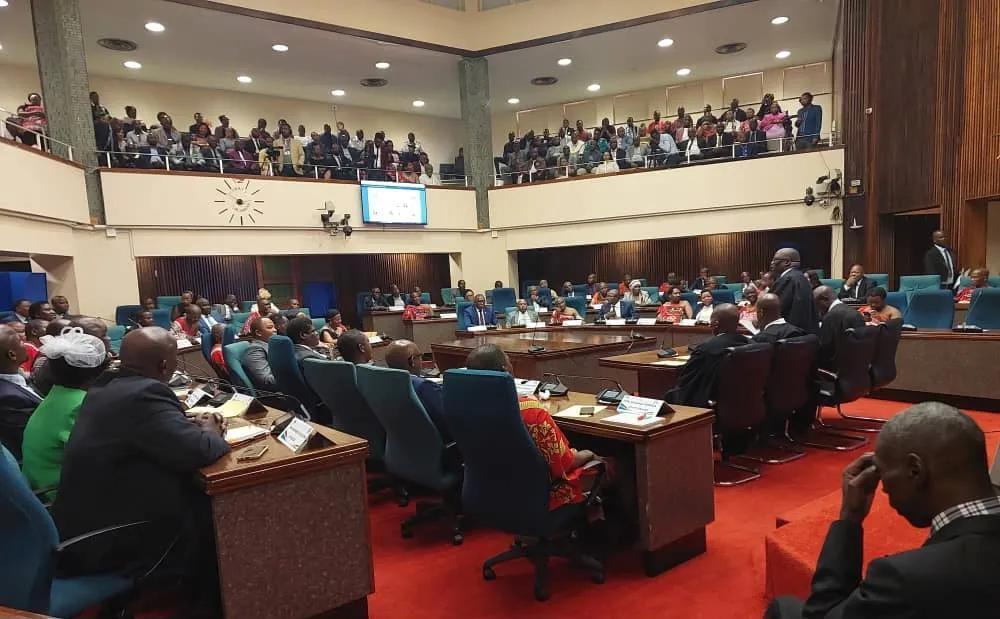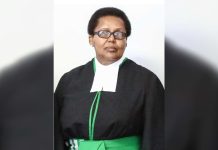Africa-Press – Eswatini. IT has barely started and the long-overdue probe into the operations of the Master’s Office is already embroiled in controversy.
While some members of the public have welcomed the judicial commission announced by Chief Justice Bheki Maphalala this week with hugs and kisses, others have labelled the process a whitewash. Not surprising, though, as controversy is no stranger in the corridors of our judiciary that was given a vote of no confidence at the recent Sibaya, for several reasons, not least the pain and suffering endured by beneficiaries of estates at the hands of officials at the Master’s Office.
The people also raised serious complaints about the death of the Anti-Corruption Commission (ACC), following a statement made by the CJ to the effect that the entity was operating unconstitutionally. Next month, a panel of judges will hear the ACC’s appeal, which is not without controversy due to the fact that one of the judges has previously been the subject of an ACC investigation. There is no counting on recusals, as these are hard to come by under the current judicial dispensation, even where it seems obvious.
Failed
Until Sibaya, both of these matters failed to receive the urgency they deserved over the past decade. No amount of public outcry about the Master’s Office could prompt a full-blown investigation. Members of the 11th Parliament decided enough was enough and attempted to respond to the public outcry, but their attempts at trying to investigate the Master’s Office were blocked by Chief Justice Bheki Maphalala, who argued that the legislature had no jurisdiction to probe matters under the Judicial arm of government.
This matter is still pending in court and it is one of the elements that have given rise to questions about the legitimacy of the probe initiated by the CJ, rendering him an interested party and therefore conflicted. Maphalala dismissed this assertion when the question of the court case was put to him, saying the issue pending in court was over who had the authority to appoint a commission of inquiry.
He said he appointed the commission in terms of Section 139(5) of the Constitution. In essence, he is saying we should expect a ruling in his favour. In reaction to this probe, the Law Society of Eswatini Lawyers has punched holes in the appointment of the probe by the CJ. The LSE contends that Section 3 of the Commissions of Inquiries Act vests authority to appoint the inquiry in the Executive branch.
Criticised
But then again, members of the public at Sibaya also criticised them, accusing them of being implicit in the syphoning of money from the estates of beneficiaries. The High Court has several cases where some attorneys have been arrested and charged. Some of these cases are pending at the High Court. So, it is a case of the pot calling the kettle black in the eyes of victims.
With regards to the extent to which the officials in the Master’s Office stand accused, this is contained in the Auditor General’s Financial Audit on government accounts for the year ended on March 31, 2021. The AG Timothy Matsebula’s report highlighted anomalies in the Guardian Fund said to be around E300 million, challenges with reclaiming bail money after suspects are acquitted, loss of crucial documents leaving widows and children worse off, and property being undervalued such that cattle were said to be only worth E2 000 per head and goats E350 per head.
Lack of proper notification of relatives about funds left by their relatives as required by law and signing of blank cheques by Assistant Masters of the High Court, which were then filled out by accountants in the absence of the beneficiaries, also adds to the list of alleged irregularities flagged by the AG.
Matsebula suggested that these issues needed a political intervention and the PAC recommended that the matter be investigated by the Commission on Human Rights and Public Administration in line with Section 164(2)(b) and to exercise its powers as outlined in Section 164(1)(b), (c), and (d) of the Constitution of Eswatini Act, 2005, which empowers the commission to investigate ‘complaints of injustice, corruption, abuse of power in office and unfair treatment of any person by a public officer in the exercise of official duties’. At the end of the day, the CJ may have his way and the probe will continue regardless of the controversy surrounding its formation. However, what will not escape it is the public perception with regards to the credibility of the process.
The Oxford Dictionary defines credibility as the quality of being trusted, believed or accepted as true or honest. This responsibility now lies with the judges appointed to lead the judicial commission. The commission consists of five judges headed by Supreme Court Judge Majahenkhaba Dlamini, who will be deputised by High Court Judge Mzwandile Fakudze.
Members of the commission are Industrial Court Judge President Sifiso Nsibande, High Court Judge Maxine Langwenya, Industrial Court Judge Lorraine Hlophe and its secretary, Deputy Supreme Court Registrar Siphiwo Masuku. Why so many judges? What becomes of their cases during the probe period? The CJ has placed the integrity of these judges under immense public scrutiny. It is now up to them to either make fools of the public and render Sibaya a mockery or become life saviours to all the suffering beneficiaries.The next 90 days will determine whether the credibility of our judiciary can ever be salvaged.
Source: times
For More News And Analysis About Eswatini Follow Africa-Press







